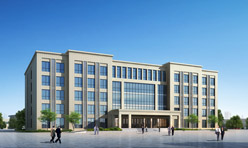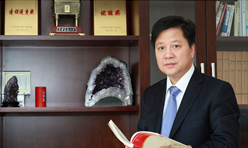Investor relations
-
We believe that the key thing is to promote our core competitiveness and industrial position through constant improvement of management performance. In the meantime, in order to better reward shareholders, we make every effort to increase market value by taking a series of lawful measures. Thank you.
-
We have been implementing resource integration in pharmaceutical industry for over ten years, and in the future, we will focus our effort on three major business sectors, namely, traditional pharmaceutical excipients, new-type starch capsules and new- type pharmaceutical excipients such as trioctylcitrate. We aim to continuously innovate to make contribution to China’s pharmaceutical excipient industry.
-
您好,公司淀粉胶囊具有如下优点:
① 安全无毒
公司的淀粉植物胶囊由100%纯天然淀粉,加适量纯化水,经特殊工艺制成,生产中不添加任何动物源性物质,无动物蛋白,彻底杜绝疯牛病和毒胶囊带来的安全隐患;同时公司严格控制生产条件,绝不采用环氧乙烷对产品灭菌,不会存在任何致癌性物质残留。
② 无交联反应
分子结构为化学惰性,不与常见化学药物和中药成分发生交联反应,装填使用安全。
③ 无化学添加
生产过程中不使用任何的防腐剂、色素及塑化剂等化学添加剂。
④ 稳定性高
组成成分为淀粉,分子结构稳定、成分单一,不易滋生细菌和发生霉变;而且易于膨胀,容易糊化,从而糊液透明,流动性和成膜性好,稳定性高。
⑤ 原材料充足
公司设有柬埔寨孙公司,柬埔寨尔康年产木薯植物淀粉18万吨,能充分保障公司淀粉植物胶囊生产的原材料需求。谢谢!
-
您好,感谢您的关注。
① 胶囊市场容量大,有利淀粉植物胶囊快速增长
根据相关数据显示,按年均复合增长率3.51%的保守计算,预计2014年全球胶囊的总产量在14,000亿粒以上,其中,明胶胶囊占总数的95%。
② 淀粉植物胶囊受众更广
目前,全球大约拥有16亿的穆斯林、10亿的印度教徒和犹太人及不断增长的素食主义者,这些群体或因宗教信仰、或因生活习惯将倾向使用淀粉植物胶囊。
公司的淀粉植物胶囊产品先后取得了欧盟素食协会认证、清真认证和犹太Kosher认证。上述认证有利于公司开拓新兴市场,进一步增强公司淀粉植物胶囊的竞争力。
③ 胶囊未来应用领域将会进一步扩展空间
与片剂相比,胶囊剂不仅更易于吞咽、更适用于高效的药物,而且能有效缩短药物上市时间。由于淀粉植物胶囊具有分子结构稳定、无交联反应、不含防腐剂、不用环氧乙烷消毒等优点,使得其更安全环保,未来或将应用片剂药品。
-
Citrate refers to a series of products which mainly uses citric acid as basic raw material such as tributylcitrate, trioctyl citrate, and trioctylcitrate and so on. As a new type of safe and green pharmaceutical exipients, it can be widely used in food, pharmaceuticals, beverage, and drug/food packing material as an alternative to benzene plasticizer. Currently, all the countries in the world are encouraging the use of safe plasticizer, since EU has prohibited using benzene plasticizer in food and pharmaceutical industries. Globally, the annual demand for plasticizer is expected to hit 180 million MT per year, which is about 200 billion US dollars in value.









